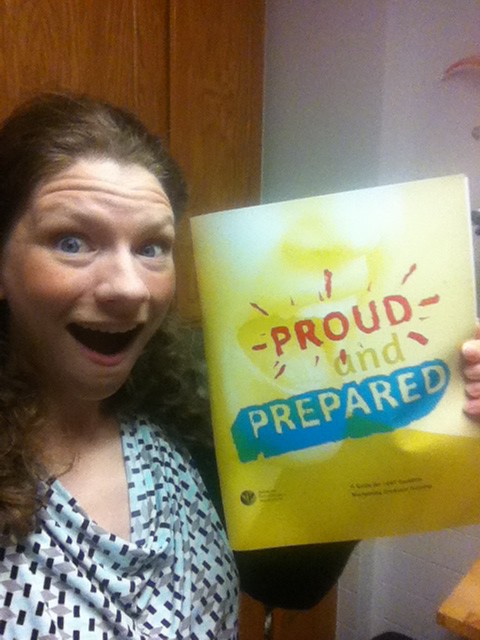
What does the site you’re applying to say about its LGBTQ training opportunities and affirmative environment? (Source: Kurious on Pixabay. Some rights reserved.)
Are you applying for internship?
Are you interested in finding out more about LGBTQ climate and training opportunities at internship and postdoctoral sites?
If so, check out our new resource created by the APAGS Committee on Sexual Orientation and Gender Diversity and Division 44’s Student Representatives! (Special thanks go to Julia Benjamin, Skyler Jackson, Elizabeth Ollen, and Eric Samuels for their leadership on this project, and to willing training directors for their time and insight.)
We conducted a survey on APPIC-registered internship and postdoctoral sites this summer with the intent of collecting information about how friendly these sites were for people of diverse sexual orientations and genders, and about LGBTQ-focused internship training opportunities that the site might offer.
We received responses from 120 internship sites, 22 postdoctoral sites, and 45 combined internship and postdoctoral sites, from a total of 36 states as well as Washington DC, and three Canadian provinces.
Feel free to explore and manipulate the Excel file here! (last updated 10-1-2015)
- You’ll be prompted to download an Excel file after clicking the link above.
- Please note that the file has two sheets; the first is introductory and the second is raw survey data.
- Note: If you can’t open .xlsx files, you can first download the file and then use a free online site (like this one) to convert the file to other formats, such as .csv or .pdf.
Data points are organized into broad categories including information on general site information, health insurance, staff diversity trainings, expression of identity, LGBTQ training focus, LGBTQ climate for clients, and overall area and site LGBTQ-friendliness. Additionally, for ease of reading, colors have been used to signify specific answer types.
In finding a site that is right for you, we encourage you to consider all sites in their totality, across domains presented here and in combination with other factors available in the APPIC directory and materials made available by each site. Further, we ask that you refrain from making conclusions about sites that did not or could not complete our survey by its deadline.
APAGS CSOGD and Division 44 plan to periodically update this database to provide the most up-to-date information for internship applicants. We hope you find it to be a helpful resource!
Editor’s note: Other APAGS tools that might help intern and postdoc applicants include webisodes on the APPIC application process, a climate guide (PDF) in workbook format for evaluating sites independently on LGBTQ criteria, a new resource guide for LGBTQ students, and much more.







 Approaching a new academic year is a lot like New Year’s Eve: It offers much of the same excitement, anticipation and hopes of good fortune that a new calendar year has come to symbolize. It’s also a time when we develop resolutions, consciously or not. We want to do well in our programs, we want the best for our clients and students, we want successful (and publishable) research and we want to be part of a thriving profession.
Approaching a new academic year is a lot like New Year’s Eve: It offers much of the same excitement, anticipation and hopes of good fortune that a new calendar year has come to symbolize. It’s also a time when we develop resolutions, consciously or not. We want to do well in our programs, we want the best for our clients and students, we want successful (and publishable) research and we want to be part of a thriving profession.